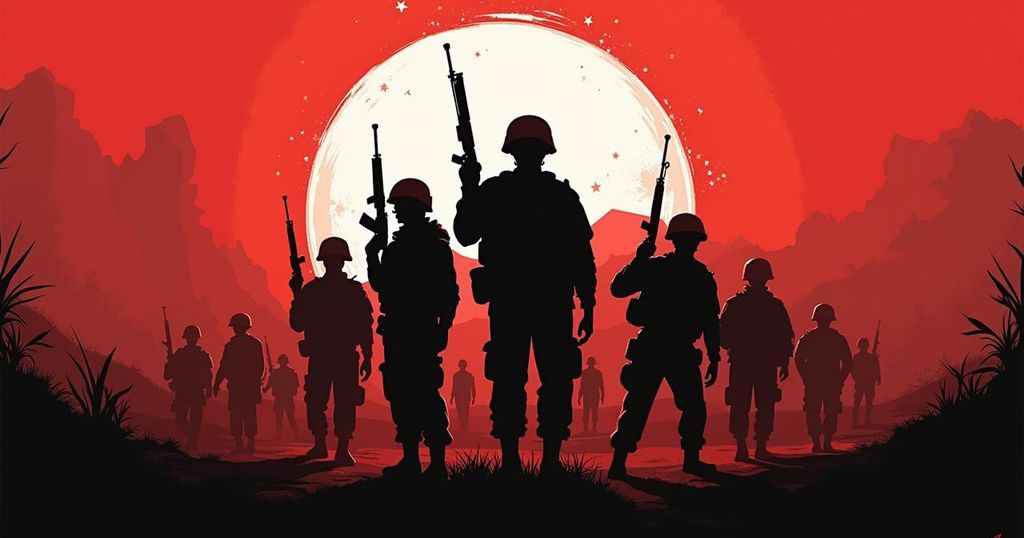The Rising Influence of the Tunisian Army in Politics Ahead of Presidential Elections
The Tunisian army’s role in politics has increased significantly under President Kais Saied since 2019, transitioning from a historically marginalized entity to one involved in high-level governance. As the nation approaches an election perceived as unfair, concerns arise over the army’s implications in both supporting Saied’s regime and potentially undermining democratic processes. Recent tensions within the military and between Saied and military leaders suggest a complicated dynamic that will be crucial to monitor during the upcoming election.
In recent years, the role of the Tunisian army in politics has experienced a notable transformation, particularly following President Kais Saied’s election in 2019. Historically marginalized under the regimes of Presidents Habib Bourguiba and Zine el-Abidine Ben Ali, the military ascended to prominence during the 2011 revolution, gaining the reputation of a defender of democracy. However, since President Saied’s rise to power, there has been a significant increase in the army’s involvement in political affairs, with military officers being appointed to ministerial positions for the first time in Tunisia’s history. As Tunisia approaches a presidential election described as largely unfair, many observers express concern about the implications of the army’s growing influence. Unlike their counterparts in neighboring countries such as Algeria and Egypt, the Tunisian military had traditionally refrained from direct political engagement. Following the 2011 revolution, however, the army’s role evolved, contributing to national security and election monitoring, thereby reinforcing its image as a guardian of democracy. The partnership between President Saied and the military deepened after his power consolidation in July 2021, indicative of a symbiotic relationship wherein Saied relies on military support to maintain his authority. As the military budget has expanded, so too had the scope of military responsibilities, now extending to areas of civilian governance. Recent tensions between Saied and military leadership hint at underlying friction, particularly in response to the upcoming election, raising questions about the military’s priorities in safeguarding democratic principles versus supporting an authoritarian regime. Evaluating the current trajectory, experts posit that the army’s significant role in Tunisia’s political landscape will be a pivotal factor in the unfolding electoral process and the nation’s future stability.
The Tunisian army’s evolution from a marginalized entity to a significant political player marks a crucial turning point in the nation’s governance. Founded in the wake of independence in 1956, the military was kept away from political matters under the leadership of Bourguiba, who opted for a civilian-centered model reminiscent of French political systems. This trajectory shifted dramatically following the 2011 revolution, where the army’s refusal to suppress protests enhanced its popularity. Subsequent governments began to rely heavily on the military for maintaining order and conducting elections, elevating its public profile. President Saied’s tenure has further transformed the military’s role, as he strategically aligned with the armed forces to fortify his power amid growing political unrest. The appointment of military officials to key governmental positions highlights this troubling intertwining of military influence and state governance.
In conclusion, the evolving role of the Tunisian army in politics embodies a complex relationship that transcends traditional military-civilian boundaries. The army, once a protector of democratic principles, is now implicated in processes that challenge the very democracy it is meant to safeguard. As Tunisia prepares for its presidential election, the military’s support remains a critical element in Saied’s exercise of power, while simultaneously posing significant questions regarding the integrity of democratic processes in the country. Observing the army’s actions during this electoral period will be vital in assessing its commitment to either promoting democratic values or succumbing to authoritarian pressures.
Original Source: www.middleeasteye.net




Post Comment